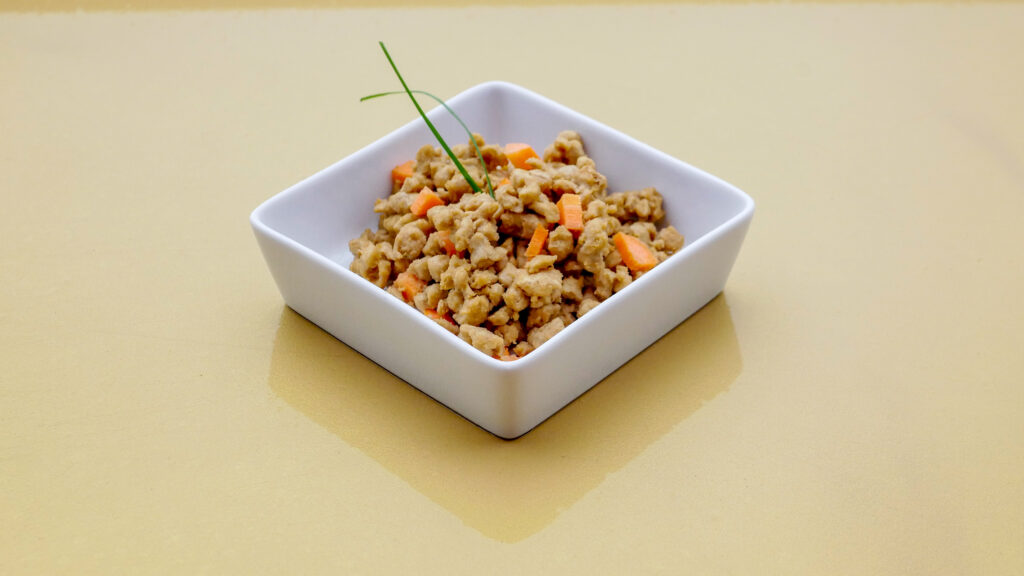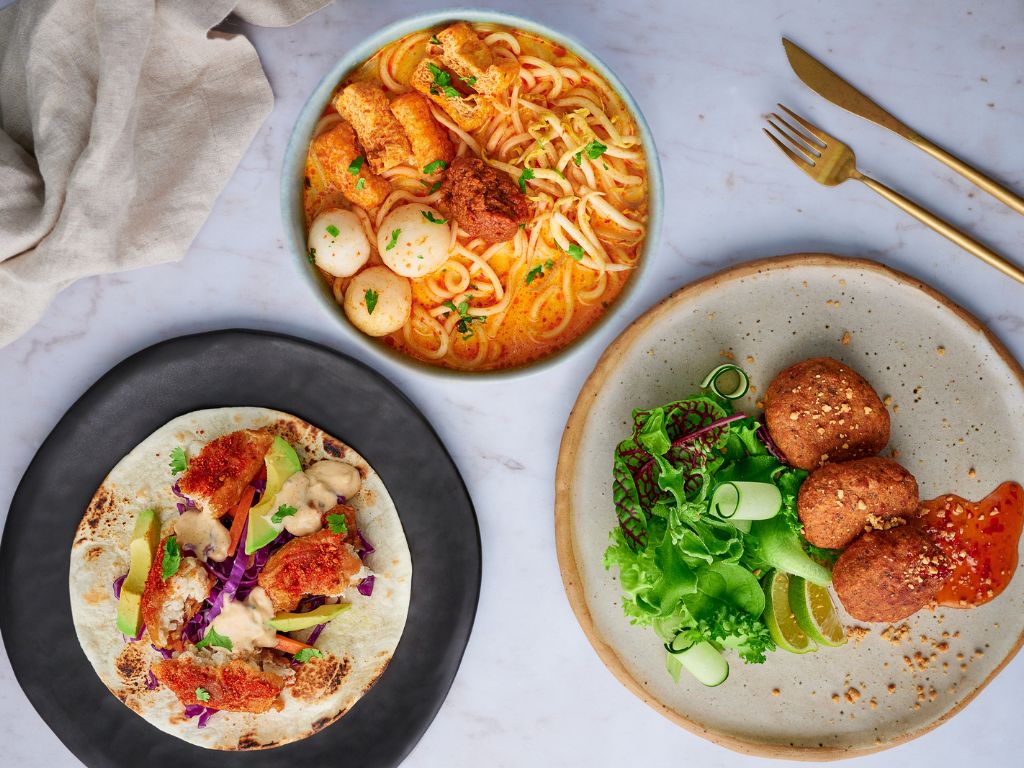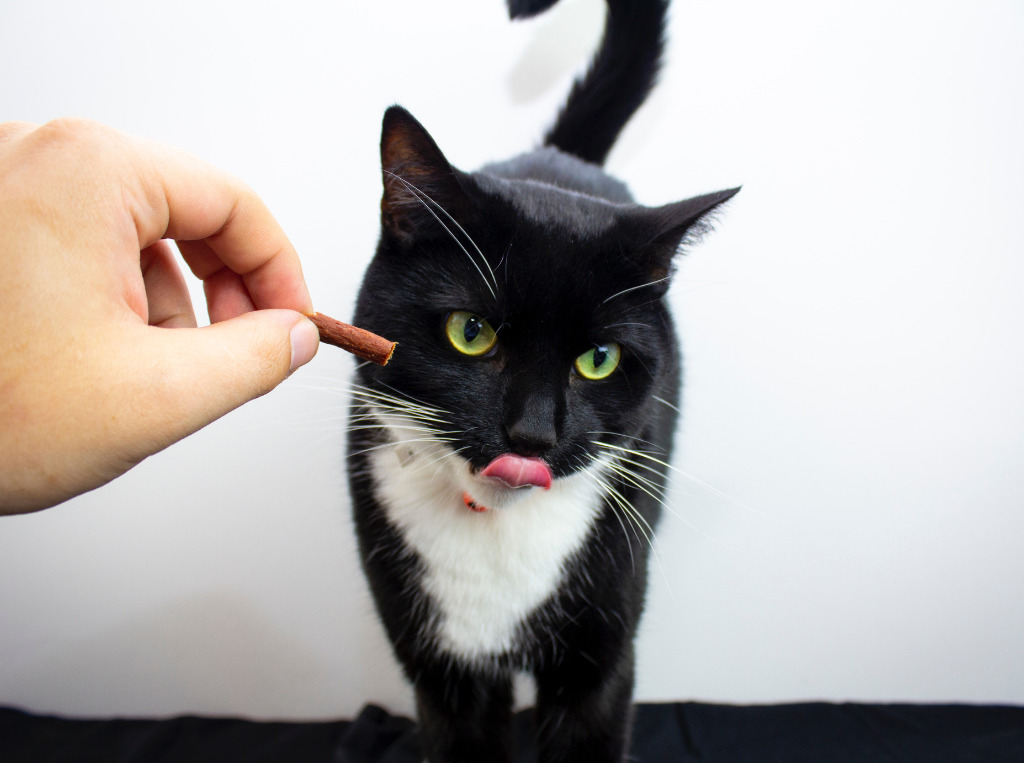Cult Food Science and Umami Bioworks Unveil World’s First Cultivated Fish Cat Food Brand
4 Mins Read
Canadian cultivated meat innovator Cult Food Science has collaborated with Singapore-based cultured seafood producer Umami Bioworks to unveil Marina Cat, a cultivated pet food brand. It will combine Umami’s cultivated red ocean snapper and Cult’s patented cultured ingredient, Bmmune, which is a blend of nutritional yeast and fermented ingredients.
Umami (formerly known as Umami Meats) is a leader in the cultivated seafood segment. It has so far debuted cell-cultured fish balls, fish cakes, filets, and a grouper fish. Cult Food Science, meanwhile, is a food tech pioneer with 18 companies in its investment portfolio, including Eat Just, MeliBio, Compound Foods and Umami.
One of the aims of Cult’s investment in Umami was to drive down costs in the cultivated seafood market. Now, the collaboration sees a new brand created in Marina Cat. The cell-cultured cat food is described as a “high-protein, low-calorie” snack, calling it a “first-of-its-kind treat [that] provides benefits to a cat’s cognitive function, based on its high levels of omega 3, 6 and 9 fatty acid chains”.
Marina Cat, which claims to be an animal-free product, aims to begin production later this year, and expects its product to have widespread availability in 2024. “My vision for the future is that we no longer have to slaughter other animals to feed our cats,” said Joshua Errett, Cult’s VP of product. “This brand brings me one very great step closer to making that a reality.”
The cultivated pet food opportunity

Pet food is a $144B market, and is expected to grow annually by 5.3% until 2028. While many vegan pet food brands are already on the horizon, cultivated pet food is still a very niche sector.
But there is cause for its growth. One study suggests that if cats and dogs were considered their own nation, they would rank as the world’s fifth-largest meat-consuming entity. Plus cats are obligate carnivores, so meat consumption is naturally high among felines. Moreover, health is an increasing priority for humans, and the continued humanisation of pets has led to a crossover of habits from the former to the latter.
A 2017 consumer study revealed that while 32.5% of pet owners would eat cultivated meat themselves, nearly half (47.3%) would be willing to feed it to their pets. Of the people who were willing to consume it themselves, 81.4% said they were happy for their pet to have cultured meat too.
In 2021, Vienna-based BioCraft Pet Nutrition (formerly Because Animals) debuted the world’s first cultivated meat pet food with its slaughter-free cultured mice. Other brands working in this space include Bond Pet Food, which created cultured chicken for pets in 2020, and Wild Earth, which developed a cultivated chicken broth topper for dogs last year.
The problem with seafood

Cult and Umami’s partnership tackles a key issue in the protein industry. The seafood sector is inundated with environmental, animal rights and labour issues. One of the major problems is overfishing, whose operators receive $22B in capacity-enhancing subsidies every year.
Lily Ng, owner of Manhattan-based alt-seafood market Lily’s Vegan Pantry, previously told Green Queen Media: “Overfishing disrupts the food chain. And when populations are diminished, other species will overpopulate, destroying biodiversity and making changes to the entire ecosystem. In the end, our consumption of fish still destroys our planet.”
Overfishing is a response to the growing demand for seafood, which has also worsened the industry’s climate footprint. Increased greenhouse gas emissions and fuel use by ocean fishery vessels both contribute to this. Additionally, plastic packaging, the presence of microplastics in oceans that get contaminated via toxic chemical runoff, and a history of child and slave labour make the sector an unsavoury prospect for many consumers.
“We must take steps to preserve ocean food sources and ecosystems for the long term,” Cult CEO Lejjy Gafour has previously said. “Fish is heavily used in pet foods and feeds for both land and aquatic animals alike. Being able to replace ocean-harvested fish with cell-based sources is a strong solution to relieving the destructive pressures on our aquatic ecosystem. At the same time, it also will let us provide healthier alternatives for our pets.”



